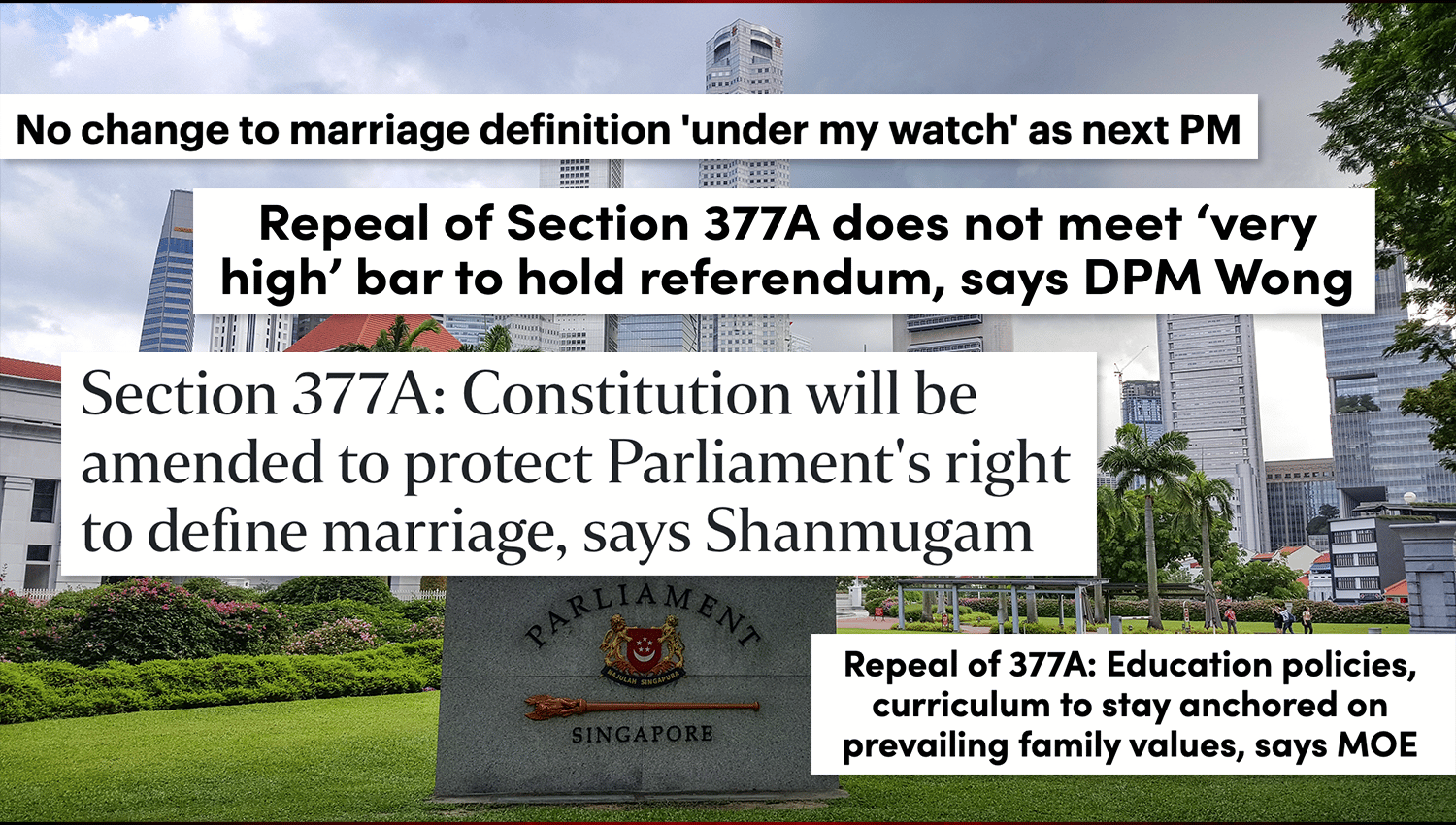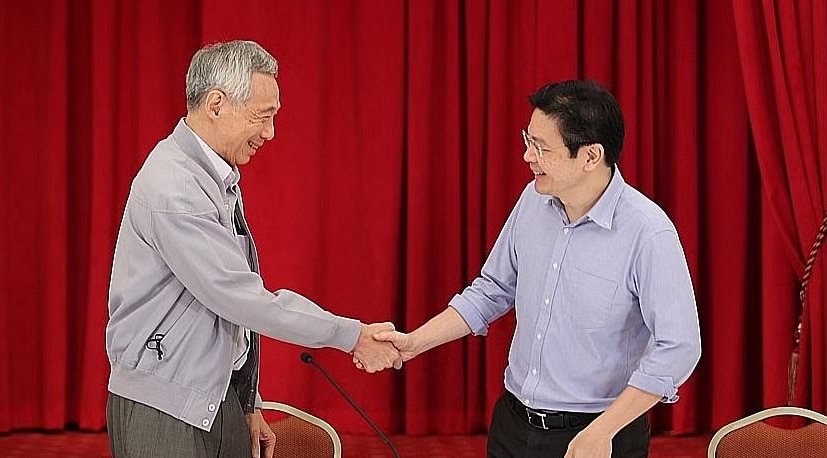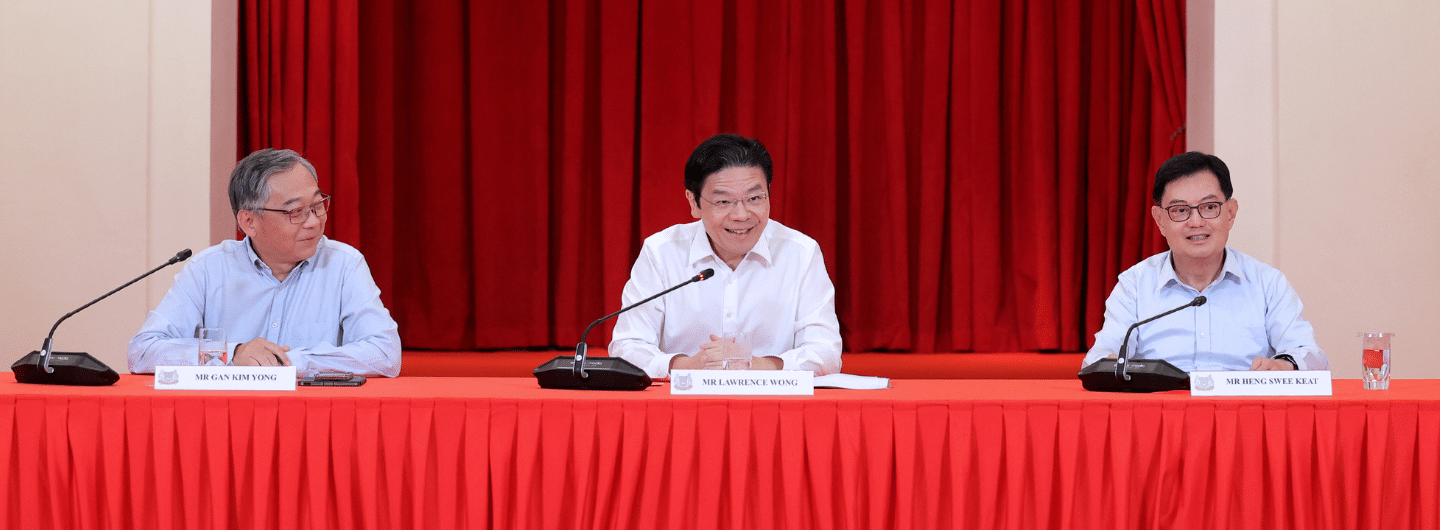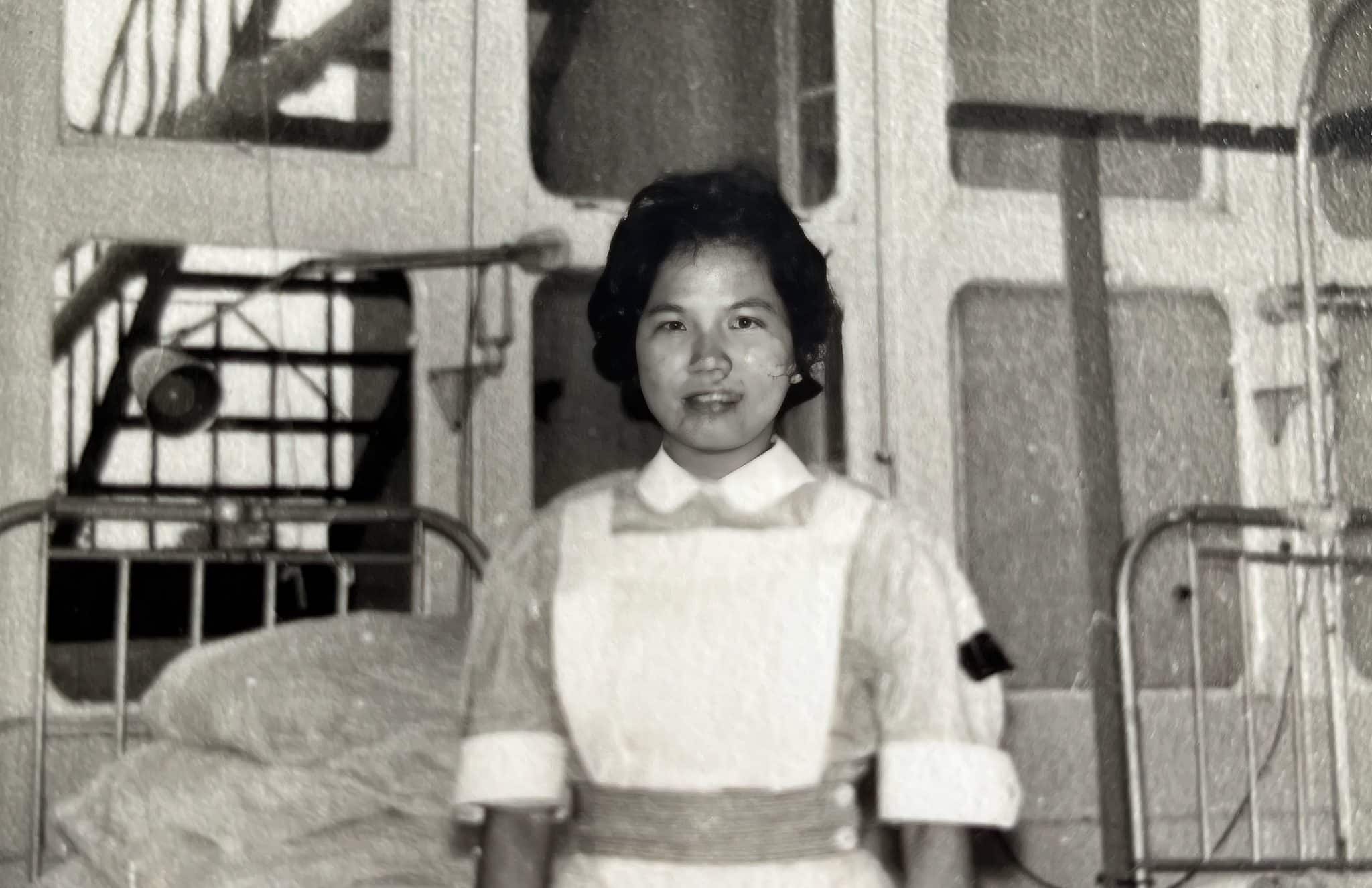Section 377A and the safeguards to follow: 10 things we know so far
Salt&Light // August 23, 2022, 12:01 pm

Photo: Steven Lasry, Unsplash.com
At the National Day Rally on Sunday (21 August), Prime Minister Lee Hsien Loong announced that Section 377A – the law that penalises sex between men – will be repealed, but the definition of marriage as between a man and a woman will be given additional Constitutional protection from legal challenge.
Attention soon turned to the details which would ensure sufficient safeguards to protect – in Mr Lee’s words – “the traditional family (which) forms the basic building block of our society”, as well as to ensure the continued free practice of religion.
“Our request is that any such move be accompanied by new constitutional protections and safeguards that are better, stronger, and collectively more strategic and more effective than Section 377A per se,” said Pastor Lawrence Khong, Chairman of the LoveSingapore prayer unity network.
Following the Rally, various politicians – many of whom have been meeting community and religious leaders for months – gave interviews to expand on the announcement, giving some insight into the thought process as well as the possible form of the legislation that would replace the law.
Here’s what we know so far:
1. The definition of marriage will not be enshrined in the Constitution, but in the Women’s Charter.
“I want to be clear because I think there’s some confusion. The definition of marriage is not going to be in the Constitution,” Law and Home Affairs Minister K Shanmugam told the Straits Times.
“That is not the intention. The risk is that the current definition of marriage in the Women’s Charter can be challenged on the basis that it is in breach of Article 12 of the Constitution.”
Instead, the Government plans to state in the Constitution “explicitly that Parliament can define the institution of marriage” via the Women’s Charter, and can make other pro-family policies on the basis of that definition.
The prevailing definition of marriage risks being challenged on the basis of being discriminatory under Article 12 of the Constitution, the Straits Times quoted him as saying.
“It can be challenged, it can be asked: ‘Why should marriage only be between a man and a woman? Why shouldn’t it be possible for two men, or two women, to be married?’
“Such arguments about marriage have been made elsewhere successfully (and) everything could go in one sweep,” said Mr Shanmugam, referring to policies built on the current definition of marriage, such as those on public housing, education and media policies.
What difference does it make if the definition of marriage is not in the Constitution? Click here to read a lawyer’s explainer on Constitutional and legal amendments.
2. The Party Whip will not be lifted for the upcoming parliamentary vote on the repeal of Section 377A.
According to the Singapore Parliament website, the Whip ensures that there are sufficient party members in the Chamber to support the party’s position and that MPs vote according to the party’s line. “Occasionally, he may ‘lift the whip’ and allow MPs to vote according to their conscience,” notes the website.
This is rarely done, but has happened on instances such as the discussion over the 1969 Abortion Bill, the Nominated MP scheme and the Lee family dispute over their Oxley Road residence.
“Basically, the overall tone of our society will not change. Our laws and policies will remain the same.”
However, the whip will not be lifted for changes to Section 377A, despite calls from some groups.
“In our minds, this is a matter of public policy because we are repealing a law which the courts have already said is not going to be enforced. At the same time, even as we were to repeal this law, we are making sure that we are putting in place measures to make sure that it will not trigger further societal changes,” said Mr Lawrence Wong.
“From that point of view, this is a matter of public policy and we do not intend to lift the whip when this matter is debated in Parliament later on.”
The current Party Whip for the People’s Action Party is Dr Janil Puthucheary.
3. The next Prime Minister has said gay marriage will not take place under his watch.
“Let me be very clear, the Government will continue to uphold our family-centred policies. We are fully committed to that,” Mr Lawrence Wong told Channel NewsAsia.
“Basically, the overall tone of our society will not change. Our laws and policies will remain the same.”
Asked if the definition of marriage might change after he takes the reins from Mr Lee Hsien Loong, Mr Wong said: “(Not) under the watch of the current Prime Minister. And it will not happen under my watch if the PAP Government were to win the next General Election”.
Mr Wong has been named the Prime Minister designate, though a date has not been set for his appointment.
4. There will not be a referendum on gay marriage.
“The bar for a referendum is set very high and repealing 377A is very far from reaching this bar,” Deputy Prime Minister Lawrence Wong told Channel NewsAsia.
The Prime Minister-designate said the Constitution that a referendum is required only when sovereignty is at stake. Singapore has never held a referendum as an independent nation, with the last referendum here taking place in 1962, when Singaporeans voted on the merger with what was then known as Malaya.
“Because we are repealing a law which the courts have already said we cannot enforce. And even as we go about repealing the law, we are taking steps to ensure that the current family and social norms do not change.
“So we believe this certainly does not meet the bar for a referendum.”
5. There were 4 challenges in recent years against the constitutionality of Section 377A.
The most recent case was struck down by the Court of Appeals in February this year. But the Judges called the law “a political compromise” ultimately best left for politicians to decide on.
“So we felt we can’t ignore this risk and do nothing. Because if that happens, if 377A is struck down, our marriage laws will also come under challenge on the same grounds,” Second Minister for Law Edwin Tong told Channel NewsAsia.
“This could lead to same-sex marriages being recognised in Singapore and this, in turn, will also have an impact on other laws and policies that are built on our existing definition of marriage.
“Any court judgment will lead to a win-lose outcome for the parties involved, and such an outcome will divide and polarise our society further. The courts themselves have said that the political realm is the more obvious choice for such decisions to be made because through a political process, we can accommodate and balance the different views and aspirations of Singaporeans.”
6. School policies will not change.
The Ministry of Education said its policies would not change, even with the upcoming repeal of Section 377A.
“Our education policies and curriculum will remain anchored on Singapore’s prevailing family values and social norms, which the majority of Singaporeans want to uphold,” MOE said in a statement.
“These include the family as the cornerstone of our social fabric, and marriage between a man and a woman.”
“Our education policies and curriculum will remain anchored on Singapore’s prevailing family values and social norms”
Sexuality education taught in schools will remain secular, based on “traditional values” and sensitive to Singapore’s multi-religious society, it added.
This includes universities and international schools, it said.
“Our schools and institutions of higher learning must remain safe spaces for the pursuit of knowledge, and not become places for advocacy or contestation on socially divisive issues. Singapore’s family and social norms must continue to be determined by Singaporeans.
“Bullying and cancel culture must not take root in our educational institutions and society. Our educational institutions will continue to partner parents to guide our children, and provide counselling and socio-emotional support to all students according to their needs.”
7. Media content and classification policies will not change.
The Ministry of Communications and Information said that the repeal of Section 377A “does not mean that we are changing the tone of society (and) to our policies on media content”.
The MCI added that the Infocomm Media Development Authority (IMDA) keeps tabs on public views of media content via its advisory committees, consisting of members of the public.
“Our content regulatory approach has to be sensitive to societal norms and values,” said MCI.
The IMDA content code states: “Films that depict alternative sexualities, e.g. homosexuality, should be sensitive to community values. Films that centre on alternative sexualities may be classified at highest rating of R21. Non-explicit depictions of sexual activity between persons of the same gender may be featured at R21 rating.”
Shows may be given an M18 rating if they have “homosexual theme or content as a sub-plot, if discreet in treatment and not gratuitous”.
8. The repeal of Section 377A is not the end of the journey. Public discourse could continue to heat up.
In the wake of the announcement, pro-LGBT advocacy groups celebrated the repeal of Section 377A, but also called the move to protect the definition of marriage “disappointing”.
“The repeal of Section 377A is the first step on a long road towards full equality for LGBTQ people in Singapore,” said 22 pro-LGBT groups in a joint statement. “Our immediate priorities will be to tackle the areas of discrimination at home, in schools, workplaces, and in housing and healthcare systems.”
Church groups also acknowledged the task at hand now is to continue to engage the stakeholders on the constitutional amendment and regulatory safeguards, and the need to equip and educate the next generation.
“There is no place for such behaviour in Singapore. No one should feel threatened because of their religious affiliation.”
“We know this has been a long journey marked by many ups and downs. But we have a long way ahead of us still,” said Pastor Lawrence Khong, Chairman of LoveSingapore, urging the church to continue to pray for the nation and remain actively engaged on social-cultural issues.
Said the National Council of Churches in Singapore: “We recognise that public views on sexuality matters remain contentious and highly sensitive, and they have a potential to divide society. In order that we remain as one people, we call on the church to maintain the social cohesion that we have enjoyed in Singapore throughout the decades, even as our views on this issue may differ.”
In his interview with Channel NewsAsia, Deputy Prime Minister Lawrence Wong echoed the Prime Minister’s comments in the Rally, warning against strong views boiling over.
“I know that there are some Singaporeans who are also concerned beyond changes on laws and policies, concerned about the excesses of activism and advocacy on both sides — pro-LGBT and anti-LGBT,” said Mr Wong.
The Government has heard from people who have been discriminated against or even harassed when they speak out or practise their faiths and beliefs.
“There is no place for such behaviour in Singapore. No one should feel threatened because of their religious affiliation. No one should feel threatened because they are LGBT,” he said.
9. Laws are being considered to stem “cancel culture” in Singapore.
At the Rally, the Prime Minister mentioned “cancel culture” as a point of concern, in which those with opposing views push against each other in an escalating battle to “cancel” out contrarian views.
“In some Western societies, not few, this has resulted in culture wars, contempt for opposing views – and not just for the views but for the opposing people – cancel culture to browbeat and shut up opponents, and bitter feuds splitting society into warring tribes,” he said.
“There are some signs of similar things starting to happen here too. I say let us not go in this direction. All groups should exercise restraint, because that is the only way we can move forward as one nation together.”
Speaking to the Straits Times the day after the rally, Law and Home Affairs Minister K Shanmugam noted that in the consultations leading up to the review of Section 377A, many had expressed concerns that their freedom to practice freedom of religion and hold a viewpoint were curtailed by groups that would “cancel them, harass them, attack them”.
“We need to take the concerns seriously. We cannot sit by and do nothing,” he said, adding that the Ministry of Law is considering measures to deal with this.
“People ought to be free to express their views without fearing being attacked – on both sides. We have to look at the right boundaries between hate speech and free speech, in this context. We should not allow a culture where people of religion are ostracised, attacked, for espousing their views or their disagreements with LGBT viewpoints, and vice versa.”
Freedom of religion is a cornerstone of the Singapore system, said Mr Shanmugam, and people should be free to practise their faith or remain non-religious.
Any confrontation between LGBT and religious groups on the basis of their beliefs would fall foul of the Maintenance of Religious Harmony Act, he added.
10. Workplaces must continue to allow employees to live out personal beliefs.
Mr K Shanmugam acknowledged concerns that some have raised over pressure to accept LGBT ideology in their workplace. An example he quoted was of an employee of a foreign multinational company feeling compelled to put up a Pride flag in a show of support for the LGBT community, even if this runs against their personal beliefs.
“This is a country where many people are religious, and that should be respected.”
“These are matters of conscience. There should be no compulsion or pressure, direct or indirect,” Mr Shanmugam told the Straits Times.
“Workplaces should be part of the secular space shared by all Singaporeans. They should not be places where people are compelled or pressured to participate in, or support, non-business related causes. Employees should not be discriminated against at work just because they hold traditional family values or pro-LGBT values.”
While the Manpower Ministry is looking into such issues, the law may not always be the best solution, he noted.
“It may be that we have to advise employers, particularly foreign employers, to be more careful and sensitive in Singapore,” he said. “This is a country where many people are religious, and that should be respected.”
We are an independent, non-profit organisation that relies on the generosity of our readers, such as yourself, to continue serving the kingdom. Every dollar donated goes directly back into our editorial coverage.
Would you consider partnering with us in our kingdom work by supporting us financially, either as a one-off donation, or a recurring pledge?
Support Salt&Light



